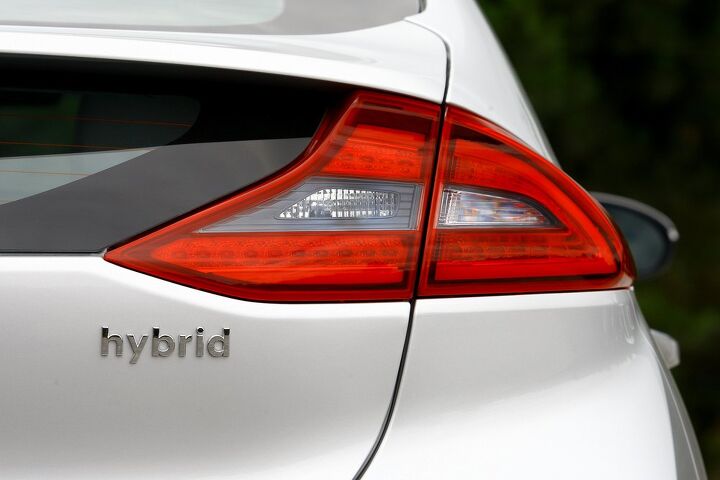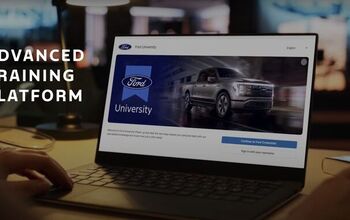Are Hybrids More Reliable Than ICE Vehicles?
The popularity of electric vehicles (EVs) is on the rise, yet they face challenges regarding reliability. Consumer Reports' 2023 Annual Auto Reliability Survey reveals that, on average, new EVs present 79 percent more problems than internal combustion engine (ICE) vehicles. Electric pickups are particularly less reliable, marking the least reliable vehicle category.
Comparative Performance: Hybrids, PHEVs, and ICE Vehicles
Hybrids emerge as more reliable options, experiencing 26 percent fewer problems than ICE vehicles. Conversely, Plug-in Hybrid Electric Vehicles (PHEVs) show an average of 146 percent more problems compared to ICE vehicles. This variance highlights the diverse performance of electrified vehicles.
Insights from Consumer Reports' Auto Testing Director
Jake Fisher, Senior Director of Auto Testing at Consumer Reports, notes that EVs are relatively new in the mainstream market. He observes some positive trends in EV reliability but advises consumers to consider models beyond their first year of release for better reliability.
Asian Brands Lead in Reliability, Challenges for Domestic Manufacturers
Asian auto brands, particularly Lexus and Toyota, dominate Consumer Reports' 2023 brand reliability rankings. In contrast, U.S. manufacturers face challenges, with Buick being the highest-ranked domestic brand at 12th place, and Chrysler ranking last.
Tesla's Performance in Battery and Charging
Tesla models, specifically the Model Y and Model 3, show comparatively fewer issues in battery and charging, diverging from the general trend of EV problems in these areas.
Consumer Reports' Comprehensive Data Analysis
The 2023 survey encompasses feedback on over 330,000 vehicles, covering 20 potential problem areas including engine, electric motors, and in-car electronics. This data forms the basis for predicting new car reliability.
Evolving Auto Market Demands
Consumer Reports' President and CEO, Marta L. Tellado, emphasizes the unchanging consumer need for safe and reliable cars, despite shifts in the auto market. The organization's annual report aims to guide buyers towards dependable vehicle choices.
New Trouble Areas for Electrified Vehicles
With the growing presence of hybrids and EVs, Consumer Reports has added specific trouble areas to its survey, such as Electric Motor, EV/Hybrid Battery, and EV Charging, to better assess these vehicles' unique challenges.
Changes in Overall Score Calculations for Safety
Starting with 2024 models, Consumer Reports is adjusting its Overall Score system. Vehicles lacking standard automatic emergency braking with pedestrian detection will see a deduction in points. Similarly, active driver assistance systems without effective direct driver monitoring systems will lead to a score reduction.
Electric Vehicles: Varied Problems Across Brands
EVs, including electric SUVs and pickups, continue to be less reliable. While Tesla faces challenges with body hardware and climate systems, other brands struggle more with powertrain, battery, and charging issues.
Hybrids Outshine PHEVs in Reliability
Hybrids are proving more reliable than both EVs and ICE vehicles. In contrast, PHEVs, due to their complexity, exhibit greater reliability issues.
Overview of Brand Performances
The survey provides a detailed analysis of various brands, highlighting their specific strengths and weaknesses across different models and categories.
This article was co-written using AI and was then heavily edited and optimized by our editorial team.
More by TTAC Staff
Latest Car Reviews
Read moreLatest Product Reviews
Read moreRecent Comments
- El scotto No rag-top, no rag-top(s) = not a prestigious car brand. Think it through. All of the high-end Germans and Lexus have rag-tops. Corvette is really its own brand.World-leading engines. AMG, M, S and well Lexus is third-world tough. GM makes one of the best V-8s in the world in Bowling Green. But nooooo, noooo, we're GM only Corvettes get Corvette engines. Balderdash! I say. Put Corvette engines in the top-tier Cadillacs. I know GM could make a world-class 3.5 liter V-6 but they don't or won't. In the interior everything that gets touched, including your butt, has to feel good. No exceptions.Some think that those who pay above MSRP and brag about it are idiots. Go the opposite direction, and offer an extended 10-year 100,000-mile factory warranty. At a reasonable price. That's Acura's current business model.
- Carrera 2014 Toyota Corolla with 192,000 miles bought new. Oil changes every 5,000 miles, 1 coolant flush, and a bunch of air filters and in cabin air filters, and wipers. On my 4th set of tires.Original brake pads ( manual transmission), original spark plugs. Nothing else...it's a Toyota. Did most of oil changes either free at Toyota or myself. Also 3 batteries.2022 Acura TLX A-Spec AWD 13,000 miles now but bought new.Two oil changes...2006 Hyundai Elantra gifted from a colleague with 318,000 when I got it, and 335,000 now. It needed some TLC. A set of cheap Chinese tires ($275), AC compressor, evaporator, expansion valve package ( $290) , two TYC headlights $120, one battery ( $95), two oil changes, air filters, Denso alternator ( $185), coolant, and labor for AC job ( $200).
- Mike-NB2 This is a mostly uninformed vote, but I'll go with the Mazda 3 too.I haven't driven a new Civic, so I can't say anything about it, but two weeks ago I had a 2023 Corolla as a rental. While I can understand why so many people buy these, I was surprised at how bad the CVT is. Many rentals I've driven have a CVT and while I know it has one and can tell, they aren't usually too bad. I'd never own a car with a CVT, but I can live with one as a rental. But the Corolla's CVT was terrible. It was like it screamed "CVT!" the whole time. On the highway with cruise control on, I could feel it adjusting to track the set speed. Passing on the highway (two-lane) was risky. The engine isn't under-powered, but the CVT makes it seem that way.A minor complaint is about the steering. It's waaaay over-assisted. At low speeds, it's like a 70s LTD with one-finger effort. Maybe that's deliberate though, given the Corolla's demographic.
- Mike-NB2 2019 Ranger - 30,000 miles / 50,000 km. Nothing but oil changes. Original tires are being replaced a week from Wednesday. (Not all that mileage is on the original A/S tires. I put dedicated winter rims/tires on it every winter.)2024 - Golf R - 1700 miles / 2800 km. Not really broken in yet. Nothing but gas in the tank.
- SaulTigh I've got a 2014 F150 with 87K on the clock and have spent exactly $4,180.77 in maintenance and repairs in that time. That's pretty hard to beat.Hard to say on my 2019 Mercedes, because I prepaid for three years of service (B,A,B) and am getting the last of those at the end of the month. Did just drop $1,700 on new Michelins for it at Tire Rack. Tires for the F150 late last year were under $700, so I'd say the Benz is roughly 2 to 3 times as pricy for anything over the Ford.I have the F150 serviced at a large independent shop, the Benz at the dealership.


































Comments
Join the conversation